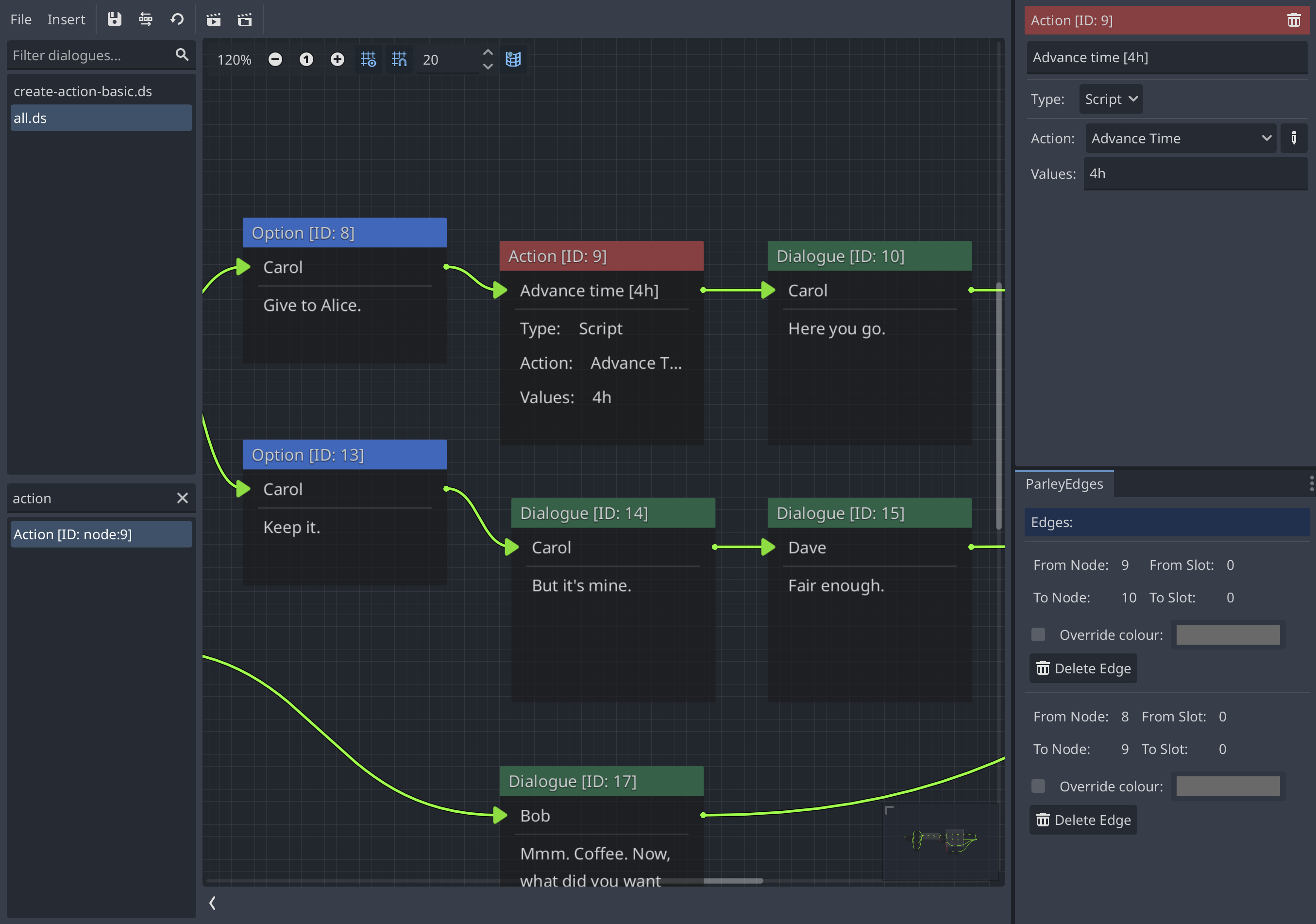Action Node
An Action Node gives the ability to run functionality during the processing of a Dialogue Sequence. For example, emitting a signal, registering a journal entry, or updating state.

They have the following characteristics:
Description
A human-readable description of the Action Node to aid future understanding of the Node at a quick glance.
Type
The type of the Action Node. This defines how the Action Node will be run. Supported types are:
Script- the script associated with the Action Node will be run when the Node is processed during the Dialogue Sequence. This is the most flexible way of defining Action Nodes.
Action Script
The action script to run when the Action Node is processed. These are stored in the Action Store.
Valid action scripts must implement the ParleyActionInterface by providing an
run method. For example:
func run(ctx: ParleyContext, values: Array) -> int:
print("Advancing time by %s" % [values[0]])
ctx.p_data.get('advance_time').emit(values[0])
return OKThe ctx parameter contains the context passed throughout the processing of the
Dialogue Sequence. This is useful to attach state to that can be used by the
Action Script processing.
The values parameter is defined on the Action Node itself and
provided as-is to the action script.
Values
The array of values passed to the Action Script. This is useful for providing
specific overrides and information to the Action Script for the defined Node. At
the moment, these are passed as a string and must be parsed within the Action
Script itself. For example: 4h.